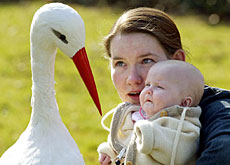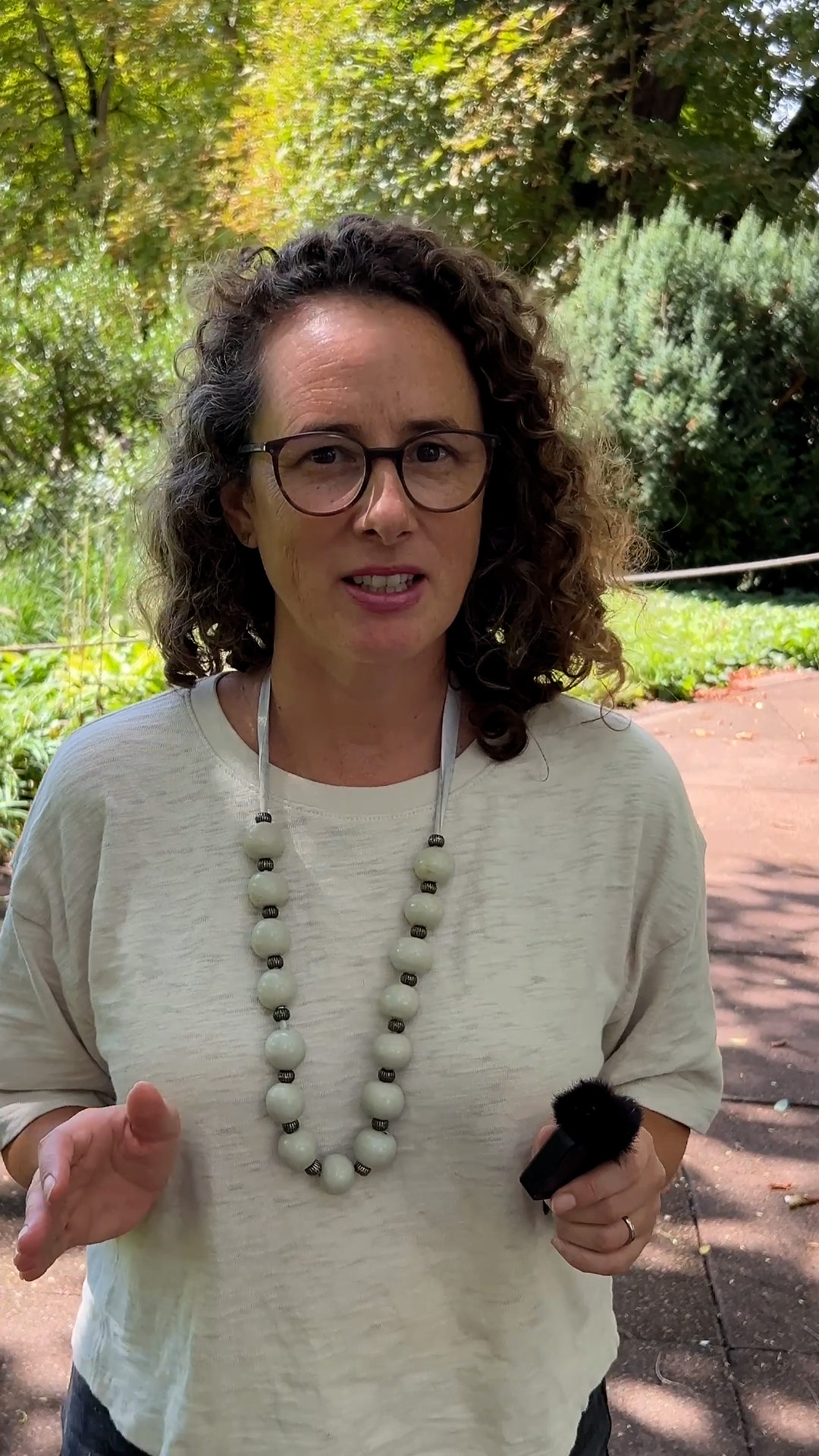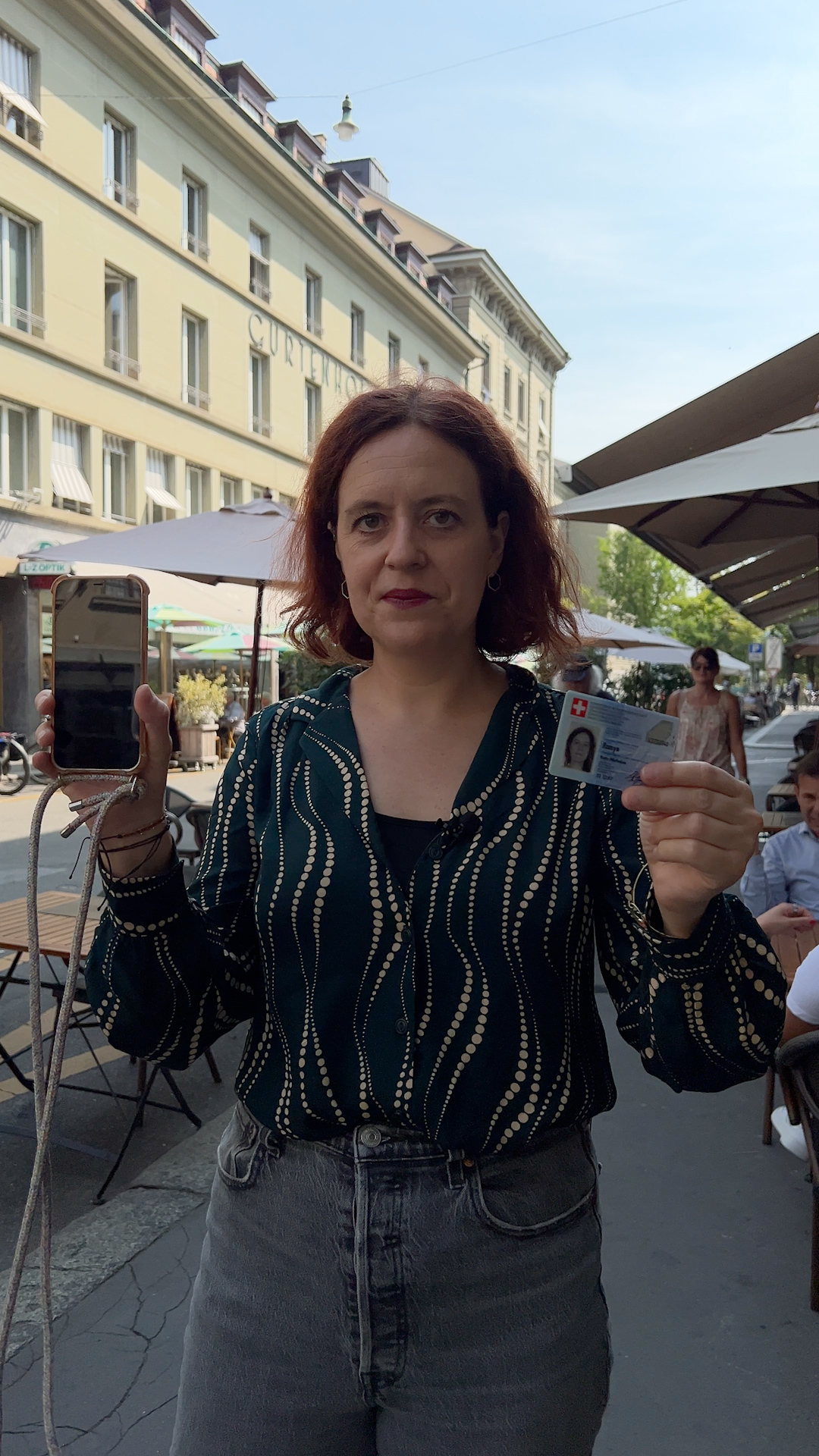
Couples face fight for fertility treatments

Rules governing reproductive medicine in Switzerland are tougher than in many other countries, according to a new study.
The current system means doctors are restricted as to what treatments they can offer patients who have difficulty conceiving naturally.
The study by the Swiss National Science Foundation analysed how policy has been shaped in a number of countries over the past two decades.
Eleven countries in total were considered, including France, Spain, Italy, Belgium, Canada and the United States.
Switzerland – alongside Norway and Germany – was found to have the least liberal policy on fertility treatments.
Certain methods, such as egg and embryo donation and pre-implantation diagnostics, are banned.
Approved techniques, such as in-vitro fertilisation, are only possible in narrowly defined circumstances. Fertility treatments are only available to married couples or to couples in a stable relationship.
Strict regulation
According to the study, the Swiss state strictly regulates the reproductive techniques a doctor can employ.
It found that policy had been influenced by a coalition of conservative or religiously motivated opponents of fertility treatments.
Christine Rothmayr, a political scientist from Geneva University, who was part of the research team, told swissinfo that political parties had been influential in shaping Swiss policy.
“The interesting thing is that it was parties from left, right and centre that together pushed for restrictive solutions,” said Rothmayr.
The Swiss cornerstone of direct democracy also increased pressure on the government to ultimately push through tougher restrictions.
“Direct democracy allowed groups that wanted regulation – and later other groups that wanted to prohibit IVF totally – to launch initiatives [nationwide votes],” added Rothmayr.
Lack of autonomy
She explained that Swiss doctors were unhappy with the lack of autonomy they had in prescribing treatments, but said they may not have been liberal in their outlook in the first place.
“The doctors did push their concerns [to their government] but, in comparison with other countries, they were already a bit more conservative. The policies that we have now are more restrictive than the doctors would have liked,” she said.
In countries that were classified by the study as “liberal”, doctors had a free hand in choosing from a larger range of fertility treatments, as long as they adhered to certain procedural rules.
The marital status of patients was seen as irrelevant, and sexual orientation played no part in deciding whether someone was suitable for treatment.
Positive attitude
The study concluded that the diversity of opinions held by doctors, research bodies and the government within a particular country contributed to a positive attitude towards reproductive medicine.
These countries included Belgium, Italy, the United States and Canada.
Rothmayr told swissinfo there was a strong likelihood that Swiss couples were seeking fertility treatment abroad, but added that there was a lack of data to support this.
“In the interviews we did hear that there are patients that go abroad because they can’t get certain treatments in Switzerland but whether in high numbers or not we don’t know,” she said.
“There is certainly a tourism with assisted reproductive technology already existing and I think Switzerland is not excluded from that. People are going somewhere else to get what they can’t get here,” she added.
swissinfo, Faryal Mirza
The Swiss National Science Foundation study examined 11 countries.
Switzerland, Norway and Germany have the strictest rules governing reproductive medicine.
Italy, Belgium, Canada and the United States have the most liberal policy.

In compliance with the JTI standards
More: SWI swissinfo.ch certified by the Journalism Trust Initiative







































You can find an overview of ongoing debates with our journalists here . Please join us!
If you want to start a conversation about a topic raised in this article or want to report factual errors, email us at english@swissinfo.ch.